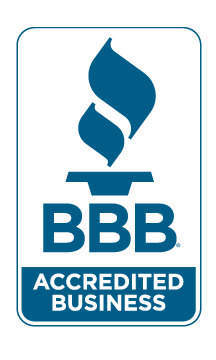A Trust-First Approach to Life Insurance in 2025–2026
In the life insurance industry, we focus heavily on process: how many leads to buy, how quickly to call, what script to follow, when to present, and how to close. But hidden underneath all of that is a truth many agents never confront:
Most sales aren’t lost at the end of the call. They’re lost in the first 90 seconds.
And they’re not lost because of price, competition, or the product itself. They’re lost because the agent never earned the trust required for a real conversation.
As I talk with people across the country—clients, agents, agencies, and carriers—I hear the same pattern over and over again. A client gets contacted by multiple agents, receives quotes, maybe even fills out an application… yet still never moves forward. When I ask why, their answers share one common theme:
“Nobody asked about my situation. They just tried to sell me something.”
This simple truth reveals the real challenge facing agents today—and the real opportunity for those willing to take a different approach.
Clients Aren’t Rejecting Insurance—They’re Rejecting the Experience
When someone tells an agent:
- “I’m good for now,”
- “I already talked to somebody,”
- “I already got a quote,” or
- “I’m still thinking about it,”
they’re rarely rejecting the idea of protecting their family. What they’re rejecting is the interaction they had with the previous agent.
Today’s consumer is flooded with marketing noise—dialers, lead vendors, text campaigns, policy mailers, AI quote tools, algorithm-driven suggestions, and agencies all chasing the same lead lists. Most clients don’t lack interest in insurance… they lack trust in the people trying to sell it.
Why? Because most agents still follow the same approach:
- Buy a lead
- Call immediately
- Run through a script
- Ask for age and basic health
- Generate a quote
- Pitch a product
- Move on
This isn’t malicious. It’s simply how many agents were trained. They were taught to gather data, push through objections, and “control the call.”
But here’s the problem:
A person’s life can’t be reduced to three questions and a quote.
When agents rush, clients feel rushed. When agents pitch, clients feel sold. When agents assume, clients shut down. And when clients don’t feel understood, they don’t move forward—even when they know they need the coverage.
The Missing Piece: Discovery That Goes Beyond Age and Health
The most successful agents—the ones who consistently protect families and build long-term businesses—have one thing in common:
They slow down.
There is a massive difference between:
“Do you have kids?”
“Tell me about your family.”
Between:
“What coverage do you want?”
“What are you trying to protect?”
Between:
“What’s your budget?”
“What worries you the most right now?”
This is the foundation of modern advising—and the reason certain agents continue to outperform even in a highly competitive market.
Saturation Isn’t the Problem—Similarity Is
Agents often complain:
- “Everyone already has coverage.”
- “Leads are tired.”
- “People are getting called by too many agents.”
- “It’s hard to break through the noise.”
The real issue is sameness.
From a client’s perspective, every agent looks and sounds identical.
That’s why the opportunity today is bigger than most agents realize.
You’re not competing with dozens of highly trained advisors.
You’re competing with a handful of professionals—and a sea of pitch-first agents.
That’s where real relationships begin—and where meaningful business happens.
Why Empathy Has Become a Strategic Advantage
But none of those things build trust.
This is why empathy—the ability to ask, listen, and understand—is now a business advantage. It’s the differentiator that no software can replicate.
When you ask someone:
“What made you start thinking about coverage now?”
When you say:
“What are you most worried about if something happened tomorrow?”
When you ask:
“Who are you trying to protect, and what would you want for them?”
The Presentation Doesn’t Begin With a Pitch—It Begins With Trust
Every great presentation has structure:
- Identifying the need
- Understanding income and responsibilities
- Evaluating goals
- Delivering recommendations
- Walking through the solution
But none of that matters if the foundation isn’t there.
That’s why the strongest advisors in the industry spend more time listening at the beginning than they do talking at the end. Clients don’t remember product details—they remember how you made them feel.
And if they feel understood, they follow your guidance.
A Final Word: People Don’t Buy Insurance — They Buy Peace of Mind
At the end of the day, life insurance is not a product business. It’s a people business.
Most importantly:
They buy from someone they trust.
If we want to elevate our profession—and better serve the families who rely on us—we must lead with empathy, curiosity, and genuine care.
And the agents who master that will continue to win—not because they’re louder, but because they listen.






